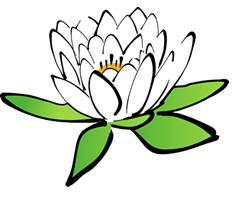一、英语的句子成分都有哪些
英语的句子成分有:
主语:主语(subject)是一个句子的主题( theme),是句子所述说的主体.它的位置一般在一句之首.可用作主语的有单词、短语、从句乃至句子。
谓语
谓语(predicate)或谓语动词(predicate verb)的位置一般在主语之后.谓语由简单动词或动词短语(助动词或情态动词+主要动词)构成。
表语
表语的功能是表述主语的特征、状态、身份等。它也可以说是一种主语补语。它位于联系动词之后,与之构成所谓的系表结构。在系表结构钟,联系动词只是形式上的谓语,二真正起谓语作用的则是表语。可以作表语的词有:名词、代词、数词、形容词、副词、不定式、动名词、分词、介词短语、从句等。
宾语
宾语(object)在句中主要充当动作的承受者,因此一般皆置于及物动词之后。
补语
补语(complement)是一种补足主语和宾语的意义的句子成分。补足主语意义的句子成分叫做主语补语(subject complement),补足宾语意义的句子成分叫做宾语补语(object complement)。
定语
定语是用来说明名词(代词)的品质与特征的词或一组词。可用作定语的有:形容词、名词、代词、数词、副词、不定式、动名词、分词、介词短语、从句和句子等。
同谓语
当两个指同一事物的句子成分放在同等位置时,一个句子成分可被用来说明或解释另一个句子成分,前者就叫做后者的同谓语(appositive)。这两个句子成分多由名词(代词)担任,同谓语通常皆放在其说明的名词(代词)之后。
状语
状语(adverbial)是修饰动词、形容词、副词以及全句的句子成分。
二、20句英语句子成分分析
1.The farm covered thousands of acres.
主语the farm,谓语covered,宾语 thousands of acres
2.Don't leave the water running all the time.
否定结构的祈使句
3.The place is worth to be visited.
主语The place,谓语is,动词不定式to be visited作宾语
4.Only then did I realiza I was wrong.
only在句首的倒装句
5.The rest of the apple is rotten.
主语The rest of the apple,谓语is,宾语rotten
6.I choose to go to work by bus.
主语I,谓语choose,动词不定式to go to work by bus作宾语
7.There are plenty of restaurants to choose from.
主语There,谓语are,宾语 plenty of restaurants,动词不定式to choose from作补语
8.I met her by chance.
主语I,谓语met,宾语her,状语by chance
9.I came across an old photo in the drawer.
主语I,谓语came across,宾语an old photo,地点状语in the drawer
10.The child tried to catch the teacher's eye.
主语The child,谓语tried,动词不定式to catch the teacher's eye作宾语
11.I intend to finish the text today.
主语I,谓语intend,动词不定式to finish the text作宾语,时间状语today
12.She looks young considering her age.
主语she,谓语looks,状语young,状语considering her age
13.Carry on working while I am away.
祈使句。
14.To see is to belive.
不定式 to see作主语,谓语is,不定式 to believe作宾语
15.The worker and writer is from Wuhan.
主语The worker and writer,谓语is,状语 from wuhan
16.Something has gone wrong with my watch.
主语Something,谓语has gone,状语wrong, with my watch状语
17.They were struggling to get out of the burning car.
主语they,谓语were struggling,不定式to get out of the burning car作宾语
18.She did want to have what is called mobile phone.
主语she,谓语did want,后面不定式是宾语,其中what is called mobile phone是宾语从句
19.We think it is necessary to work hard.
主语we,谓语think,后面是宾语从句
20.Seeking friendship is human nature.
动名词主语Seeking friendship,谓语is,宾语human nature
三、帮忙分析两个简单英语句子的句子成分
主语:you
谓语:must pay
宾语:good attention
your pronunciation作to的宾语.因为,to是介词,介词后面的名词,作该介词的宾语.
To do today's homework without the teacher's help is very difficult.中主语的中心词
【分析】
1、主语是说明动作的执行者是谁或是什么。
2、在英语中,主语通常由名词、代词、数词、动名词、动词不定式、主语从句等充当。
例如:
The teacher told us an interesting story.老师告诉我们一个有趣的故事。(the teacher,名词)
We love our motherland.我们热爱祖国。(we,主格,代词)
Four and five is nine.四加五等于九。(four,数词)
Walking is good exercise.走路是很好的运动。(walking,动名词)
To see is to believe.眼见为实。(to see,动词不定式)
What you need is more practice.你需要的是更多的练习。(what you need,主语从句)
3、在句子中,主语一般放在句首,但在倒装句中放在句尾。
例如:
So do I.(I,主语,句尾)
Neither has he.(he,主语,句尾)
4、当不定式(to do sth)做主语时,一般可以用 it做形式主语,句子意思仍然不变,即句型:
It is/was+名词或形容词+to do sth.
例如:
你在上面提到的句子可以改为:It is difficult to do today's homework without teacher's help.
【结论】
你所提到的句子属于五种基本句子类型中的SVP(主+系+表)句型,因此,该句子的主语肯定是含有动词不定式的短语“to do today's homework”,without teacher's help是状语,is是连系动词,difficult是表语,is与difficult共同构成谓语。
翻译:没有老师的帮助完成今天的作业是困难的。
如果有需要帮助,请给我留言。
四、英语中关于句子成分的小问题
这六个句子的成分:
1.there is+名词+地点状语
2.主+系+表
3.主+谓+宾
4.主+谓+宾+同位语
5.主+系+表+表语补足语
6.主+系+表
1.There is a school there.
2.My school is there.
3. He rans rnto the classroom.
4. I like the story best of all.
5.He is too old to work.
6.Both of us are puprle.
隔开的每一部分分别跟上面的成分对应。
你要了解什么是句子成分,及句子的几大结构。如下:
1.英语句子成分分为七种:主语、谓语、宾语、定语、状语、表语、宾语补足语。
1、主语是句子所要说的人或事物,回答是“谁”或者“什么”。通常用名词或代词担任。如:I’m Miss Green.(我是格林小姐)
2、谓语动词说明主语的动作或状态,回答“做(什么)”。主要由动词担任。如:Jack cleans the room every day.(杰克每天打扫房间)
3、表语在系动词之后,说明主语的身份或特征,回答是“什么”或者“怎么样”。通常由名词、代词或形容词担任。如:My name is Ping ping.(我的名字叫萍萍)
4、宾语表示及物动词的对象或结果,回答做的是“什么”。通常由名词或代词担任。如:He can spell the word.(他能拼这个词)
有些及物动词带有两个宾语,一个指物,一个指人。指物的叫直接宾语,指人的叫间接宾语。间接宾语一般放在直接宾语的前面。如:He wrote me a letter.(他给我写了一封信)
有时可把介词to或for加在间接宾语前构成短语,放在直接宾语后面,来强调间接宾语。如:He wrote a letter to me.(他给我写了一封信)
5、定语修饰名词或代词,通常由形容词、代词、数词等担任。如:
Shanghai is a big city.(上海是个大城市)
6、状语用来修饰动词、形容词、副词,通常由副词担任。如:He works hard.(他工作努力)
7、宾语补足语用来说明宾语怎么样或干什么,通常由形容词或动词充当。如:They usually keep their classroom clean.(他们通常让教室保持清洁)/ He often helps me do my lessons.(他常常帮我做功课)/ The teacher wanted me to learn French all by myself.(老师要我自学法语)
☆同位语通常紧跟在名词、代词后面,进一步说明它的情况。如:Where is your classmate Tom?(你的同学汤姆在哪里?)
2.英语三大句子结构
主系表:主语+be动词+表语
主谓宾:主语+谓语+宾语(实义动词)
There be:以“There be”开头
